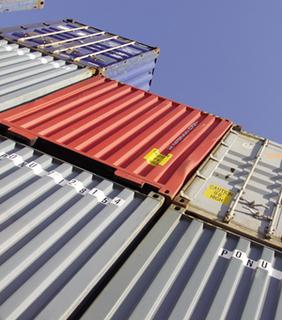The Russian Gas monopoly Gazprom intends to take action in order to force The Ukraine to pay for gas and stop the country from exporting it to Europe.
Published:
7 July 2000 y., Friday
Russian deputy Prime Minister Viktor Khristenko has reported that gas deals between the two CIS members are to be radically revised and a new payment procedure is to be introduced soon. By October 1st this year, the Russian government will have prepared a set of documents regulating gas transactions between the two states. Judging from the published excerpts from those documents, Russia will no longer tolerate The Ukraine’s non-payment and gas theft.
Firstly, to stop gas deliveries through The Ukraine would mean loosing lucrative contracts with Germany. Secondly, Kiev has cunningly managed to use Gazprom’s and the Russian authorities’ interests to suit its own ends, by promising the Kremlin that The Ukraine could delay its bid to enter NATO. The Russian authorities willingly bought these promises.
Politics aside, there were also economic reasons for Russia’s lenience towards The Ukraine. Gazprom has always acted as a private legal entity, although the Russian government holds a 41% stake in the gas giant. However, Gazprom continuously delayed tax payments, omitted dividends, and state representatives were given a disproportionately low share of the seats on Gazprom’s board of directors.
The government therefore did not take great pains to defend Gazprom’s interests.
Russia also insists that The Ukraine should stop illicit gas deliveries to Europe. The problem is that The Ukraine purchases Russian gas on favorable terms, regularly delays payments to Gazprom and then resells gas at high European prices, thus disrupting the stability of European gas supplies.
Šaltinis:
Internet
Copying, publishing, announcing any information from the News.lt portal without written permission of News.lt editorial office is prohibited.
The most popular articles
 The European Commission has approved, under EC Treaty state aid rules, an Italian framework temporarily adapting certain existing risk-capital schemes to increase companies' financing possibilities during the current economic crisis.
more »
The European Commission has approved, under EC Treaty state aid rules, an Italian framework temporarily adapting certain existing risk-capital schemes to increase companies' financing possibilities during the current economic crisis.
more »
 The European Commission has authorised, under EC Treaty state aid rules, a Maltese measure to help businesses to deal with the current economic crisis.
more »
The European Commission has authorised, under EC Treaty state aid rules, a Maltese measure to help businesses to deal with the current economic crisis.
more »
 We're making progress. That's the word from Treasury Secretary Tim Geithner about settling the financial markets.
more »
We're making progress. That's the word from Treasury Secretary Tim Geithner about settling the financial markets.
more »
 According to a new report released by NextGen Research, global markets for financial kiosks and enhanced ATMs will grow at a compound annual rate of 9 percent, to include more than 186,000 financial kiosks and nearly 2.5 million ATMs by 2013.
more »
According to a new report released by NextGen Research, global markets for financial kiosks and enhanced ATMs will grow at a compound annual rate of 9 percent, to include more than 186,000 financial kiosks and nearly 2.5 million ATMs by 2013.
more »
 Non-farming Latvians are buying pigs to beat the economic crisis.
more »
Non-farming Latvians are buying pigs to beat the economic crisis.
more »
 Is your money well spent at EU level? Every year, in April, the EP concludes its examination of EU spending for the financial year closed 16 months previously.
more »
Is your money well spent at EU level? Every year, in April, the EP concludes its examination of EU spending for the financial year closed 16 months previously.
more »
 In the construction sector, seasonally adjusted production1 decreased by 1.0% in the euro area2 (EA16) and by 2.1% in the EU272 in March 2009.
more »
In the construction sector, seasonally adjusted production1 decreased by 1.0% in the euro area2 (EA16) and by 2.1% in the EU272 in March 2009.
more »
 Between 2000 and 2008, EU27 trade in goods with Russia more than tripled in value, with EU27 exports to Russia rising to 105 bn euro in 2008 from 23 bn in 2000.
more »
Between 2000 and 2008, EU27 trade in goods with Russia more than tripled in value, with EU27 exports to Russia rising to 105 bn euro in 2008 from 23 bn in 2000.
more »
 The European Commission has launched today a call for proposals covering key energy infrastructure projects such as energy interconnections, offshore wind energy and carbon capture and storage as part of the implementation of the EEPR.
more »
The European Commission has launched today a call for proposals covering key energy infrastructure projects such as energy interconnections, offshore wind energy and carbon capture and storage as part of the implementation of the EEPR.
more »
 During its plenary session on 13 May 2009, the European Economic and Social Committee adopted a key opinion on responding to the crisis in the European automotive industry.
more »
During its plenary session on 13 May 2009, the European Economic and Social Committee adopted a key opinion on responding to the crisis in the European automotive industry.
more »